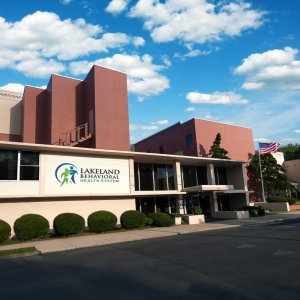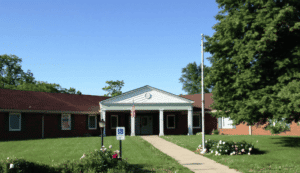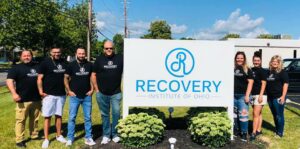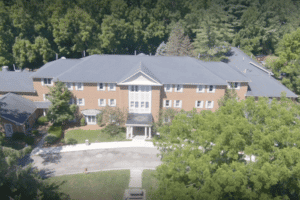ADHD And Addiction
Understanding ADHD And Addiction
Attention deficit hyperactivity disorder (ADHD) is a neurological disorder that is typically diagnosed during childhood and may last into adulthood. ADHD is typically associated with difficulty paying attention, staying still, coping with boredom and tedious tasks, and controlling impulsive behaviors; ADHD and addiction can be closely related.
Individuals with ADHD tend to be overly active and have trouble paying attention and controlling impulsive behavior.
Those who have ADHD may be more inclined to use drugs or alcohol as a way to cope with the symptoms that come with this disorder. Others may be prescribed Stimulants to treat ADHD and become hooked. In either case, a cycle of addiction that is hard to diagnose or treat without professional help.
Approximately 25% of adults that go to a treatment center for alcohol and substance abuse also live with ADHD.
There are various treatment programs that focus on addressing both ADHD and addiction simultaneously. Addiction treatment programs for individuals with ADHD emphasize a dual diagnosis approach and utilize various types of therapy to allow for healing and healthy habits to take form.
Common Questions About Rehab
How Do ADHD And Addiction Develop?
There are several things that can affect someone’s chance of developing ADHD or an addiction, including:
-
Genetics
Heredity is the most common cause of ADHD. Children with ADHD are 4 times as likely to have a family member also diagnosed with ADHD. Genes also play a role in the development of addiction.
-
Exposure To Toxic Substances
Researchers have found a connection between the maternal use of tobacco products or alcohol during pregnancy and the development of ADHD in their children. Lead exposure has also been linked to hyperactivity; exposure to illicit substances in the womb may result in substance dependency in the newborn upon birth.
-
Trauma
Injury to the brain, a brain tumor, stroke, or disease can cause inattention and poor regulation of motor activity and impulses. This is an uncommon cause of ADHD; decreased impulse control may also lead to addiction.
Try Online Therapy

Get professional help from an addiction and mental health counselor from BetterHelp by phone, video, or live-chat.
Take the Quiz. Get Matched. Begin Therapy.

Online therapy can help you with long term addiction support. Connect with a therapist from Talkspace anytime, anywhere.
Get matched with a therapist now.
Paid Advertising. We may receive advertising fees if you follow links to promoted online therapy websites.
ADHD And Addiction
ADHD can have a negative impact on academic or work performance and may hinder social development. Many people living with ADHD turn to substance abuse as a way to combat these effects. Research has shown that about 21% of boys and men with ADHD and 13% of women and girls with ADHD abuse drugs or alcohol. People with ADHD may be inclined to abuse drugs or alcohol to make up for the lack of dopamine in their brains, as they have lower levels of the chemical than people who don’t have ADHD.
Treating ADHD and substance abuse can be challenging because the medications used to treat ADHD can also become habit-forming. Stimulants like Ritalin and Adderall are often effective at managing symptoms, but they also have a high potential for abuse. During treatment, it is imperative to monitor both issues at the same time.
I think everybody in the field agrees, if you can get a toehold on the addiction, you should think about treating the ADHD relatively quickly. If you treat ADHD aggressively and you monitor for substance abuse, you’re going to reduce [delinquency].
A multidimensional approach to treatment can help those living with ADHD and a substance use disorder (SUD) find long-term healing.
Looking for a place to start?
Join the thousands of people that have called a treatment provider for rehab information.
Free and confidential
Available 24/7
Access to professional treatment
ADHD Symptoms And Effects
The symptoms and development of ADHD vary from person to person, as some will show symptoms that others lack based on the type of ADHD that is present.
The core characteristics of this disorder fall into 3 categories:
- Lack of ability to pay attention or focus
- Hyperactive behavior or constant physical activity
- Impulsive behavior
Within these 3 categories, there are various behavioral patterns that meet the criteria of ADHD:
- Difficulty finishing tasks
- Problems listening to others
- Struggles with organizing projects or responsibilities
- Forgetfulness
- Being easily distracted
- Constant fidgeting
- Inability to control speech or actions
- Frequently losing or misplacing personal items
Adults with ADHD often have trouble performing adequately at work. They can feel chronically disorganized and misplace important items needed to complete a task. They also might forget appointments or overlook social commitments. Relationship problems may also develop, as individuals with ADHD are inclined to make offhanded remarks without thinking, or individuals with ADHD may fail to pay attention to others because they are distracted. These frustrations in life may cause those with ADHD to abuse alcohol or drugs as a way to relax, fit in socially, or slow down and escape.
Addiction and ADHD can be treated simultaneously through a dual diagnosis treatment program. It’s important to treat both disorders at once, as the cycle of frustration with ADHD can lead to self-medication with alcohol or drugs.
Counseling, family therapy, self-help groups, and holistic therapy are the core components of a successful recovery program for individuals with ADHD. A secure and supportive environment is provided in addiction treatment to promote healing while in recovery.
Featured Centers Offering ADHD and Addiction Treatment


A dual diagnosis program focuses on:
- Modifying destructive thoughts and behaviors that promote substance abuse
- Building self-esteem and encouraging internal motivation
- Controlling the symptoms of ADHD through behavioral modification and medication therapy
- Identifying substance abuse triggers and learning how to manage impulses
- Educating partners and family members about ADHD
Check if my insurance covers rehab
Addiction Center is not affiliated with any insurance.
Dual diagnosis programs assist with managing the symptoms of ADHD and modifying the individual’s responses and triggers while in recovery. This will allow people struggling with ADHD and addiction to live a healthy and functional life, without being dependent on any substance.
If you or your loved one has ADHD and is struggling with substance abuse, you may want to consider treatment. For more information on online therapy options, click here.
Try Online Therapy

Get professional help from an addiction and mental health counselor from BetterHelp by phone, video, or live-chat.
Take the Quiz. Get Matched. Begin Therapy.

Online therapy can help you with long term addiction support. Connect with a therapist from Talkspace anytime, anywhere.
Get matched with a therapist now.

Begin making positive changes with Online-Therapy.com. Quality online therapy, from the comfort of home.
Answer a few questions to get started.
Paid Advertising. We may receive advertising fees if you follow links to promoted online therapy websites.
Published:
Author
Jeffrey Juergens

-
Jeffrey Juergens earned his Bachelor’s and Juris Doctor from the University of Florida. Jeffrey’s desire to help others led him to focus on economic and social development and policy making. After graduation, he decided to pursue his passion of writing and editing. Jeffrey’s mission is to educate and inform the public on addiction issues and help those in need of treatment find the best option for them.
- More from Jeffrey Juergens
Reviewed by Certified Addiction Professional:
David Hampton

A survivor of addiction himself, David Hampton is a Certified Professional Recovery Coach (CPRC) and a member of the National Association of Alcohol and Drug Abuse Counselors (NAADAC).
- More from David Hampton
Sources


Recovery Starts Today
Call Now For Addiction Support


Recovery Centers of America at St. Charles
St. Charles , IL

Newport Academy – Teen Treatment Center
Saint Cloud , MN

Banyan Treatment Centers – Chicago
Chicago , IL

Timberline Knolls Treatment Center for Women
Lemont , IL

Lakeland Behavioral Health System
Springfield , MO

Banyan Treatment Centers – Illinois
Gilman , IL


Recovery Centers of America at Indianapolis
Indianapolis , IN

Boca Recovery Center – Indiana
Bloomington , IN

Ridgeview Behavioral Hospital
Middle Point , OH


Ambrosia Treatment Center – Oklahoma
Duncan , OK


